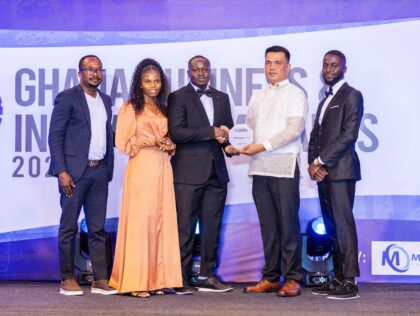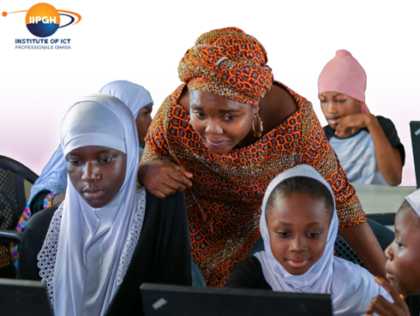The internet has come to change how we live, play, learn and work. In spite of this, it is estimated that about 48.3% of the world’s population is offline. Africa has the lowest penetration rate of internet adoption of 31.2% despite the exponential growth over the last 17 years.[1] In Ghana, internet penetration is estimated at 34% even though broadband presents opportunities that can fast track our development.[2] The low penetration in Ghana can be attributed to a myriad of factors both on the demand side and the supply side. Chief among them include affordability, lack of infrastructure, absence of relevant content and the capacity of citizens to use the service.
In Ghana, majority of our citizens cannot afford broadband services due to the cost of the service and end-user devices. For instance, 20GB of one service provider’s fixed broadband costs GHC85 even though nearly a quarter of Ghanaians cannot afford to spend GHC3.60 a day on food. [3] Also, the cost of end-user devices such as laptops, tablets and smart phones are outside the reach of most Ghanaians due to very low income levels especially for our citizens in the rural areas.
In addressing the issue of affordability, there is been some initiatives from the service providers. In January, 2015 Airtel partnered Facebook to offer the internet.org app which provided locally relevant basic internet free of charge. However, Ghana needs to intensify its efforts to get citizens online. Government through Ghana Investment Fund for Electronic Communications (GIFEC) must intensify initiatives to get poor citizens online through its Cyber Laboratory Programmes which seeks to provide Community Information Centres (CIC) and connectivity to schools and libraries in order to address the issue of affordability. Furthermore, reduction in import taxes of computers and tablets for educational projects especially in the rural areas can help reduce the cost of end-user devices.
Another demand side barrier is the lack of relevant content for the different segments of our society. Relevant content, services and apps can stimulate the demand for broadband services. It is important therefore to target the different categories of people. Those persons who do not see the benefit of staying online, those who do not connect due to the absence of relevant content and services and those non-internet users who are high income earners. There is also a category of our compatriots who are offline because they lack basic computer or language skills to go online.
The private, public and third sectors can assist by creating local applications and content which are relevant to citizens. For instance, Vodafone is collaborating with Facebook and Google to register a thousand small businesses online so that they can exploit the power of social media. Similarly, the Institute of ICT Professionals, Ghana has also initiated a campaign to put a thousand start-ups online by supporting them to create and manage their websites. E-commerce, e-banking and e-government services can be used to attract non-internet users who can afford broadband services. The digitisation of the economy is a good step that will encourage broadband adoption. The relevant agencies must therefore ensure that bottlenecks associated with the delivery of online services by the Passport Office, Registrar General’s Department, SSNIT, etc. are resolved. It is also important that we explore how local entertainment can be used to stimulate demand in broadband services.
In addition to creating relevant content, the lack of ICT skills and basic computer literacy is a source of concern. Computer literary cannot be discussed without considering functional literary. Everything must be done to ensure that more of our citizens have access to quality education. The free Senior High School programme must therefore be used to improve computer literacy even for those students from the rural areas. In order to tackle the issue of capacity, we need to improve the teaching of ICT in our primary schools. We must ensure that every school has a well-equipped ICT lab with broadband service. There is talk of improving our curricula at the primary school level. It is important that we revisit the teaching and learning of ICT and improve ICT skills training in our basic schools.
Lack of infrastructure is still the most significant supply side barrier to broadband adoption in Ghana. This includes ancillary infrastructure such power especially in the rural areas where we have the underserved and unserved populations. Low cost and scalable solutions must be deployed in the rural areas to match the low incomes levels of inhabitants. Public Private Partnerships (PPP) can be explored in delivering solutions such as the Loon Balloons developed by Alphabet and satellite broadband for areas that are difficult to reach. Also, there is a need to review our broadband policy to emphasize Universal Service Obligations (USO) and specific connectivity targets on how the whole country can be covered with broadband service. GIFEC as a Universal Service Fund (USF) must be positioned strategically to provide infrastructure that will facilitate the introduction of broadband by the service providers in rural areas. Finally, the digitisation of Ghana’s economy must have universal broadband provision as its foundation. The programme must be used to stimulate demand for broadband service especially in the rural areas.
Broadband offers so many benefits that will inspire innovation, create new opportunities and change lifestyles. With good broadband, professionals in the urban areas can work remotely so that people in the rural areas can tap into their expertise. Also, e-learning, e-health and e-government offers prospects for accelerated development. Furthermore, we exploit opportunities in the area of entertainment especially online radio, television, gaming and music. E-commerce will change the way business is done in Ghana. Finally, broadband offers the solid platform for emerging technologies such as the Internet of Things (IoT).
Author: Kuuku Sam, ICT Policy & Research (Member: Institute of ICT Professionals, Ghana)
For comments, contact author: kuuku.sam@iipgh.org Mobile: 0274333510
[1] http //www.internetworldstats.com/stats.htm 2011
[2] http://www.internetworldstats.com/stats1.htm
[3] https://www.unicef.org/ghana/Ghana_Poverty_and_Inequality_Analysis_FINAL_Match_2016(1).pdf, Page 1.





